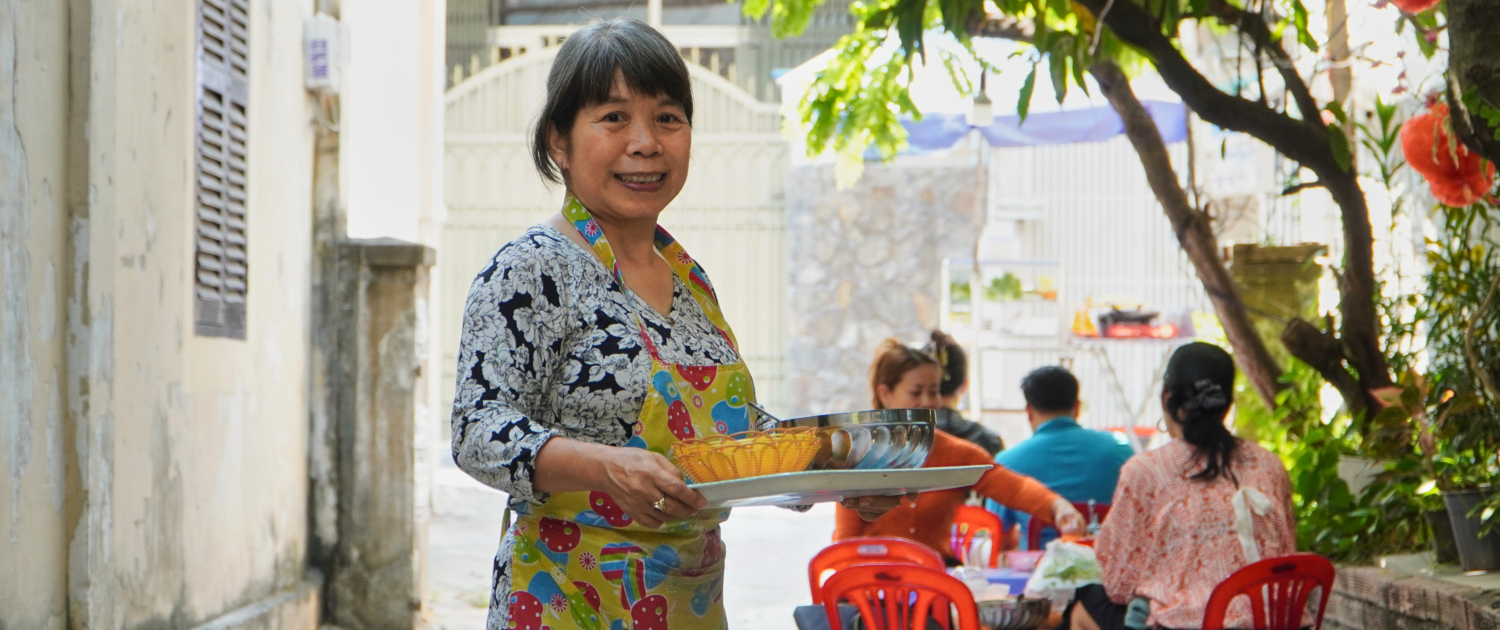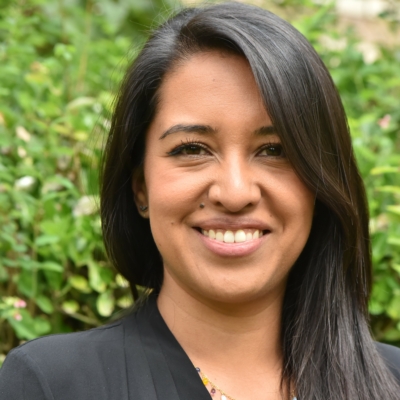‘Thanks to my small business, I have managed to improve my family’s financial situation and quality of life’, Thuy, manager of “Thuy’s Noodle Soup”, a beneficiary of the Micro and Small Entreprise Support Programme in Ho Chi Minh City, Vietnam.
Contact: Lourdes Defrance-Toledo
Micro and Small Entreprise Support Programme Manager
E-mail: lourdes.toledo@iecd.org
Support programmes for small businesses and agri-food processing
Since 1998, the IECD and its partners have implemented the Support for Small Enterprises program, which accompanies heads of small businesses or startup entrepreneurs in the creation, consolidation and permanence of their activity. It is now deployed in 9 countries, the most recent of which is Egypt, which launched its activities this year. It was also implemented in Syria up until 2011.
The results are quickly visible and enterprises start to generate stable and lasting, or higher benefits. Some create jobs. They contribute to improving the living conditions of entrepreneurs, their families and their employees.
WOMEN CENTER STAGE!
Based on the observation that two-thirds of businesses in the world are created by women, the IECD’s programs focus on their financial independence as a key vector for sustainable economic development. However, women face many obstacles and it should be highlighted that the income generated from their activities has a limited potential for growth. The IECD is building relationships with local partners involved in the promotion and empowerment of women and is setting up many initiatives that help women to develop their activities: 40% of the beneficiaries of the IECD’s Support Program for VSEs are currently women and this percentage is particularly high in some countries (80% in Palestinian Territories, 78% in Lebanon, 76% in Vietnam, 64% in Madagascar). Some projects are even reserved solely for women. Thus, in Palestine, the IECD supports the development of a women’s cooperative which currently employs about 20 workers and also offers an agri-food training course in order to provide women in the East Jerusalem region with marketing and management skills. Since the end of 2015, the IECD has been working with the Women’s Union, a socio-political organization that helps and supports Vietnamese women. In 2016, the IECD trained about 50 women from this organization in the basics of management. In Congo-Brazzaville, 32 young street girls participated in the basic management training thanks to a partnership with the ASI association. In line with these projects, the IECD has built a partnership with the Bel group which aims to support and train street vendors in the Ivory Coast, DRC and Vietnam, a majority of whom are women, in how to manage their business. The training content was reviewed in order to adapt to a less educated public and 276 people were trained in 2016.
THE THREE LINES OF DEVELOPMENT OF THE VSE PROGRAM
1. Awareness of entrepreneurs:
basic tools for the
company’s permanence
2. Professionalization of entrepreneurs: tools and an ecosystem for the company’s growth
3. Lucrative services: develop a lasting economic model via a complete
service offering.
Basic Management Training (BMT) targets active entrepreneurs, and those wishing to start their own businesses are also supported by Start-Up Training (SUT). These two courses include theoretical sessions in the classroom and several hours of individual support for up to one year after training. This support plays a key role in the entrepreneurs’ appropriation of management notions and tools. A new training course for street vendors, Top Sales Training (FTV), was designed and tested in 2017.
After this support, and in order to avoid the isolation of active entrepreneurs, the IECD and its partners came up with the idea of creating the Entrepreneurs Club, which offers thematic evenings, specialist training (management, marketing, financial analysis and IT), personal advice and access to a computer room. The Club favors the creation of a network and offers the opportunity to update or improve skills.
The IECD and its partners offer tailor-made training, diagnosis studies and advice services for the largest structures (public services, major groups, large local enterprises, etc.). They help to progress towards a better economic balance for the program by generating income whilst also allowing large companies to take advantage of the expertise acquired in the program. Therefore, the aim is the commercialization of activities 1 and 2 among other structures.





 Cameroon/Ivory Coast – The TRANSFORM project
Cameroon/Ivory Coast – The TRANSFORM project